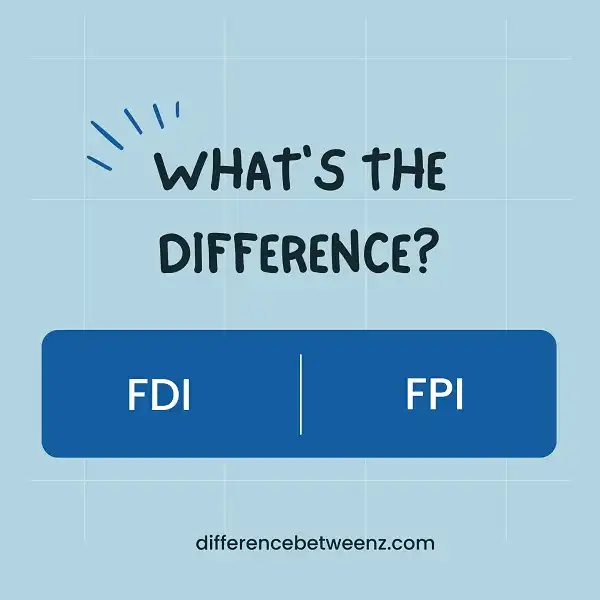Foreign Direct Investment (FDI) and Foreign Portfolio Investment (FPI) are two different ways that foreign entities can invest in domestic companies or economies. Both forms of investment can provide benefits to the host country, but they are not the same and there are key differences between FDI and FPI. In this blog post, we will explore those differences and discuss when each type of investment is most appropriate.
What is FDI?
FDI, or foreign direct investment, is a wide range of investments made by foreign companies into domestic markets. These investments can encompass everything from the purchase of existing businesses to the creation of new production facilities within a country. FDI can provide a number of benefits for both the investing company and the local economy. For example, FDI can help businesses to access new markets, gain expertise from skilled workers in their host countries, and capitalize on lower operational costs. Furthermore, FDI has been shown to have positive effects on GDP growth and employment levels in many countries around the world. Thus, FDI is an important tool for economic development and should be encouraged where possible.
What is FPI?
FPI investment stands for foreign portfolio investment. It occurs when investors (foreign or domestic) trade securities in another country for the purpose of earning a return on their investment. Portfolio investment is different from direct investment, which is when an investor acquires a controlling interest in a company. In contrast, FPI gives the investor no say in how the company is managed. FPI can take several forms, including stocks, bonds, and mutual funds. It is important to note that FPI is not the same as a foreign direct investment (FDI). FDI occurs when an investor acquires a controlling interest in a company, whereas FPI does not.FPI can be a riskier form of investment than FDI because the investor has no control over how the company is managed. However, FPI can also offer potential rewards in the form of higher returns. Therefore, it is important to carefully consider the risks and rewards of FPI before making any investments.
Difference between FDI and FPI
FDI and FPI are different concepts that are often used interchangeably, but they actually refer to different types of foreign investment. FDI stands for foreign direct investment, and it refers to the process of purchasing or building a physical asset in another country. FPI, on the other hand, stands for foreign portfolio investment, and it typically involves buying stocks, bonds, or other financial assets in another country. FDI tends to be longer-term in nature and tends to bring more resources into a country, whereas FPI is shorter-term and focuses more on capital gains or returns on investment. Despite these differences, both FDI and FPI can play an important role in facilitating economic growth and development. As such, policymakers around the world will continue to need to balance these two types of foreign investment as they work to promote long-term growth and stability.
Conclusion
There are several important distinctions between FDI and FPI, but the most significant may be that FDI is a more long-term investment in a foreign country, while FPI is typically less risky and provides opportunities for quicker returns. It’s important to understand these differences when making decisions about where to invest your money – so if you’re still trying to decide which route is best for you, hopefully, this article has helped clear things up.


